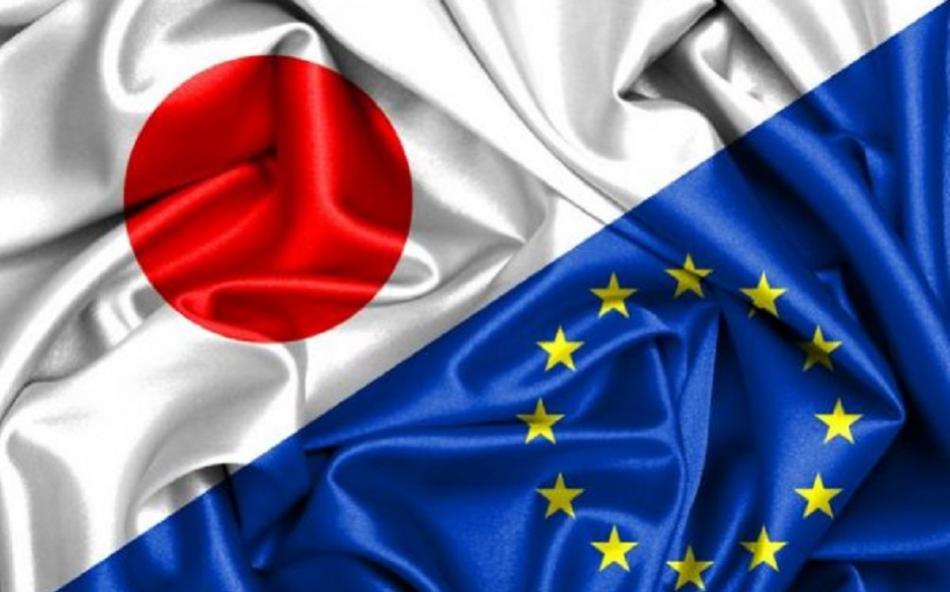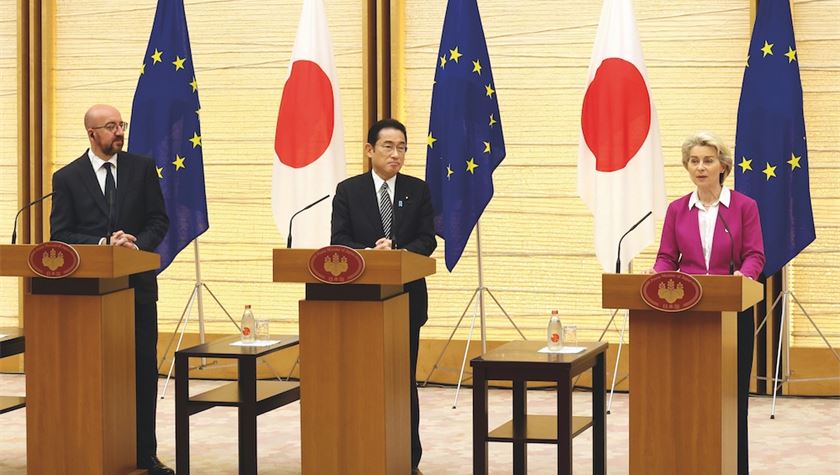In the realm of international trade and economic diplomacy, the Japan-EU Economic Partnership Agreement (JEPA) stands out as a landmark accord, symbolizing a pivotal shift in the economic relations between two of the world’s leading economic powerhouses. Signed in July 2018 and entering into force in February 2019, the JEPA heralds a new era of enhanced trade flows, investment opportunities, and strengthened economic ties between Japan and the European Union. This comprehensive trade agreement, often touted as the world’s largest bilateral free trade deal, is a testament to the shared commitment of Japan and the EU to promote free trade, counter protectionism, and set high standards for global trade practices.
Unleashing Economic Potential
At its core, the JEPA is designed to significantly reduce barriers to trade, thereby boosting access to markets on both sides. By eliminating tariffs on a vast majority of goods, the agreement facilitates smoother and more efficient trade. For instance, European exporters of agricultural products, wine, and cheese see major benefits as Japan reduces tariffs on many such items, opening up a market known for its high demand for quality European goods. Conversely, Japanese manufacturers of automobiles, electronics, and industrial machinery benefit from reduced tariffs and streamlined access to the EU’s expansive market.

The agreement also encompasses comprehensive rules on non-tariff measures, providing a predictable and transparent regulatory environment for businesses. This aspect of the JEPA is particularly crucial, as it addresses regulatory hurdles that have traditionally impeded trade flows, enabling easier compliance and reducing costs for exporters and importers alike.
Investment Opportunities and Economic Synergies
Beyond trade in goods, the JEPA fosters a conducive environment for cross-border investment, enhancing the attractiveness of Japan and the EU as investment destinations. The agreement includes provisions that promote a transparent, open, and non-discriminatory investment climate, thereby encouraging businesses to expand their operations and invest in new markets. This is expected to spur economic growth, create jobs, and enhance competitiveness on both sides.

The JEPA also paves the way for increased collaboration in areas of mutual interest, such as digital trade, sustainable development, and innovation. By aligning standards and regulations, the agreement facilitates cooperation in cutting-edge sectors like renewable energy, digital technology, and biotechnology. This not only boosts economic ties but also contributes to addressing global challenges through joint initiatives and shared expertise.
A Strategic Response to Global Challenges
The JEPA is more than an economic agreement; it is a strategic alliance that reflects the geopolitical interests of Japan and the EU in promoting an open, rules-based international order. At a time when protectionist sentiments and trade tensions are on the rise, the JEPA stands as a bulwark against the forces of isolationism, signaling a strong commitment to free trade and multilateralism. By setting high standards for labor, environmental protection, and consumer safety, the agreement also aims to influence global trade rules and practices, promoting sustainability and social responsibility in international trade.
Enhancing Economic Relations and Cultural Exchange
The economic implications of the JEPA are profound, with the potential to significantly boost trade volumes and economic output on both sides. However, the benefits of the agreement extend beyond the economic sphere. By fostering closer ties between Japan and the EU, the JEPA also facilitates cultural exchange, mutual understanding, and people-to-people connections. This cultural and economic interlinkage enriches societies, broadens horizons, and builds a solid foundation for a lasting partnership.

The Japan-EU Economic Partnership Agreement is a milestone in international trade, setting a new benchmark for future trade deals. By eliminating tariffs, simplifying regulatory barriers, and promoting sustainable development, the JEPA unleashes the economic potential of two of the world’s largest economies. More importantly, it sends a powerful message in support of free trade, cooperation, and the benefits of an interconnected global economy. As Japan and the EU navigate the complexities of the 21st century, the JEPA stands as a testament to their shared vision for a prosperous, open, and sustainable world.